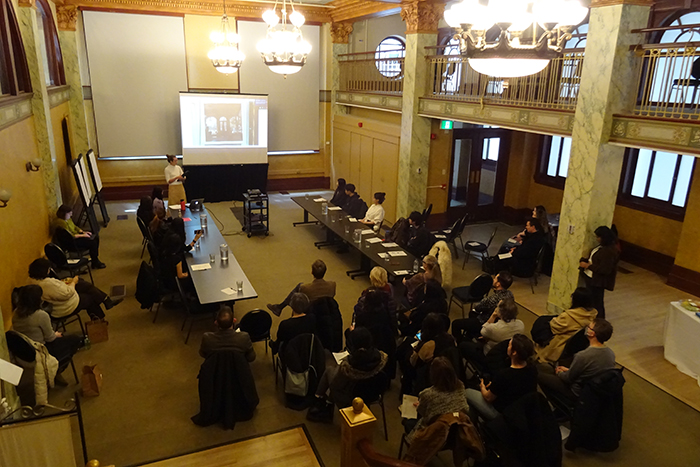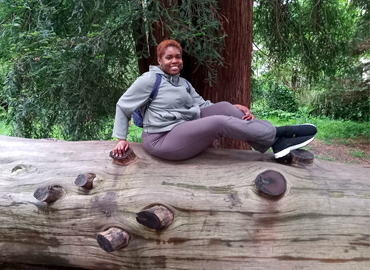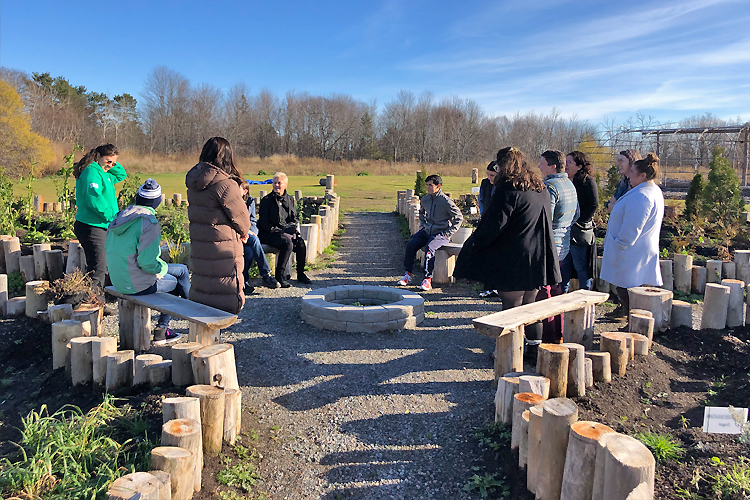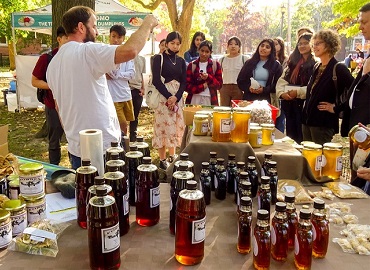
Discover Experiential Learning Courses
In course-based experiential learning, some of your regular course-related activities take place outside the classroom. Course-based experiential learning takes two basic forms:
- Your course may partner with an outside organization for an academic internship or organization-partnered project
- Academic internships where you apply what you learned in the classroom in a workplace setting
Both academic internships and organization-partnered projects can require 20 to 100 hours of a 0.5 or 1.0 credit course.
Benefits of Course-Based Experiential Learning
Course-based experiential learning can help you develop:
- Stronger self-confidence as a student, learner and individual
- Knowledge about and practice with professional skills
- Deeper understanding of and appreciation for complex concepts, ideas and information introduced in your course
- Greater ability to apply theoretical course concepts in practice
- Heightened awareness of how you learn what you learn
- Deeper bonds with fellow students, instructors and members of the community; an emerging professional network
- Meaningful experiences and stories that can help in your applications for jobs, graduate studies, professional programs or volunteer roles
Who is Eligible to Participate?
If you are enrolled in the course, you are likely eligible to participate. In most cases, the experiential learning activity is a mandatory, fully integrated component of your course.
Is There an Additional Cost?
In some cases, yes. The cost of your course is covered through your tuition fees. However, there may be additional costs (associated with transportation, etc.), depending on the course. Limited funding may be available to help offset some of these costs for students with demonstrated financial need. Please check the course description carefully and consult your College Registrar's Office for details.
Requirements
- Review the requirements of your course, as outlined in the instructor’s course syllabus. If you have questions around the experiential learning component and what will be expected of you, ask.
- Consider any aspects of the course that may prevent you from participating fully, or which may present significant barriers (i.e., financial circumstances, mobility issues, caregiving responsibilities). Address these as early as possible with your instructor.
- Complete any extra requirements fully and on time. For example, you may need to complete Vulnerable Sector Screening, sign an employee contract, review your rights and responsibilities around Workplace Accident Insurance, get a COVID-19 booster, coordinate schedules with your group members or complete an organization’s onboarding/orientation module.
Next Steps
- Consult with your department to learn of any new or emerging experiential learning courses that may be available to you.
- If you can't find what you need, or if you have an idea for an experiential learning course that does not yet exist, talk with others — instructors, TAs, administrators, friends, fellow students, family members or community members.
- If you are unsure whether course-based experiential learning is for you, try out the Student Decision Tree to see what types of experiential learning opportunities meet your goals.
Please contact the Office of Experiential Learning and Outreach Support (experiential.artsci@utoronto.ca) if you have any questions.
Course-Based Experiential Learning in the News

Working as a barista in Frieburg, Germany for her iPRAKTIKUM internship, Shantel Watson not only dramatically improved her German, she also learned first-hand what it takes to run successful sustainable urban development programs.
Read more about Shantel's experience: iPRAKTIKUM internship broadened Shantel Watson's German language skills and her understanding of sustainable urban development

As part of IICM's St. Michael's College seminar course Christianity, Truth and Reconciliation, students had the opportunitiy to visit a former residential school in Sault Ste. Marie, Ontario. Throughout the trip, these students received archival training from staff, met with residential school survivors and engaged in a variety of activities that celebrate Indigenous culture and communities. Students described this experience as "one of the most reflective and insightful learning experiences ever."
Read more about their experience: 'A rare and deeply impactful experience': Students learn about residential schools and their legacy




